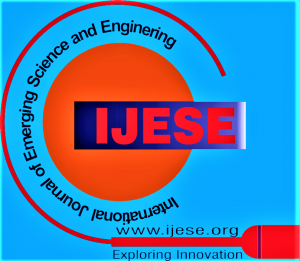![]()
Machine Learning: A Literature Review for Breast Cancer
Vaishnavi Karma1, Prateek Nahar2
1Vaishnavi Karma, Research Scholar, Department of Computer Science and Engineering, IES IPS Academy, Indore (MP), India.
2Prateek Nahar, Assistant Professor, Department of Computer Science and Engineering, IES IPS Academy, Indore (MP), India.
Manuscript received on 27 December 2022 | Revised Manuscript received on 30 January 2023 | Manuscript Accepted on 15 January 2023 | Manuscript published on 30 January 2023 | PP: 1-4 | Volume-11 Issue-2, January 2023 | Retrieval Number: 100.1/ijese.B25430111223 | DOI: 10.35940/ijese.B2543.0111223
Open Access | Editorial and Publishing Policies | Cite | Mendeley | Indexing and Abstracting
© The Authors. Blue Eyes Intelligence Engineering and Sciences Publication (BEIESP). This is an open access article under the CC-BY-NC-ND license (http://creativecommons.org/licenses/by-nc-nd/4.0/)
Abstract: Breast cancer is, after lung cancer, the most prevalent form of the disease in the globe. Women are the demographic most likely to be affected by this condition. Breast cancer is the most common kind of cancer to result in a woman’s death if she is of childbearing age. Because there is always more to learn and room for improvement in every line of work, medical imaging is no exception to this rule. It is expected that the death rate associated with cancer would decrease if it is discovered early and effectively treated. The diagnostic accuracy of healthcare professionals may be improved through the use of machine learning techniques. The technique known as deep learning has the potential to differentiate between healthy and cancerous breasts, also known as neural networking. This method might be used to distinguish between healthy breast tissue and breast tissue affected by illness. Long-term research on the topic aimed, among other things, to examine breast cancer and screening practices among Indian women. This was one of the primary goals of the inquiry. A literature study was conducted with the assistance of several databases, as well as additional sources. Participants in the study were instructed to use phrases linked to breast cancer, such as “breast carcinoma” and “breast cancer awareness,” in addition to terms such as “knowledge” and “attitude,” as well as the gender neutral term “women.” Additionally, India played a role in the study conducted. This search does not look for articles that have been published in the English language in the last 12 years.
Keywords: Breast Cancer, CNN, Mammograms-MINI-DDSM, Machine Learning
Scope of the Article: Machine Learning
